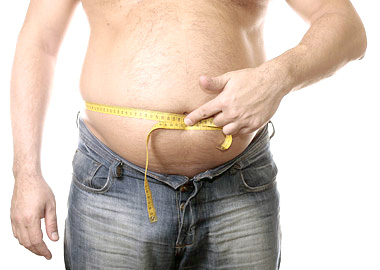Recently, a very high-profile amateur bodybuilder added 80 pounds in the off-season. Competing at 255 pounds as a super heavyweight, he moved his bodyweight up to 330 pounds. It was all the talk of the bodybuilding industry: “How much muscle will he gain? How will he be able to diet down? How will he look?” Self-proclaimed armchair gurus, secure in the anonymity that internet forums provide, debated for months about whether or not this amateur phenom and self-proclaimed “Next BIG thing” would show up with 25 pounds of new muscle, or depleted and overdieted.
When contest time arrived, the bodybuilder showed up as a shadow of his former self. Despite owning a supplement contract and being featured on magazine covers before ever winning a national show, and having the expertise of some of the greatest minds in bodybuilding beside him through the journey, he was just simply too fat.
Bodybuilders who put on 30+ pounds of fat in the off-season are faced with three very unhappy options, when a show is looming 12 to 16 weeks away. First, they can withdraw from the show. In this case, the amateur bodybuilder was contractually obligated to compete. Second, they can pile on the cardio (up to two hours per day) along with a diet that is super-low in calories. This amateur bodybuilder also did this. Finally, they can use dangerous drugs designed to boost the metabolic rate and body temperature high enough to accelerate the metabolism. This practice, which often involves the use of explosive and dangerous bodybuilding supplement DNP, is as effective as it is dangerous.
The alternative to this kind of irresponsible “super-bulking” is to gain clean weight in the off-season. Fifteen to twenty pounds of fat and water is more than enough “padding” to allow you to move some heavy weight and add some quality muscle to your frame. The body is most anabolic at the 10-12% body fat range. Anything above 16 or 18%, and the spiking estrogen levels also put one at risk of side effects like gynecomastia.
Long-term dieting is very tough on the immune and central nervous systems. Carrying 20+ pounds of fat requires the heart to work much harder. Feelings of low self-esteem can occur when bodybuilders are carrying that much fat. Worst of all, off-season progress cannot be adequately measured when the new muscle is hiding under that much fat. The bottom line – never get higher than 20% in the off-season, or the road to getting lean could be a very tough one!

